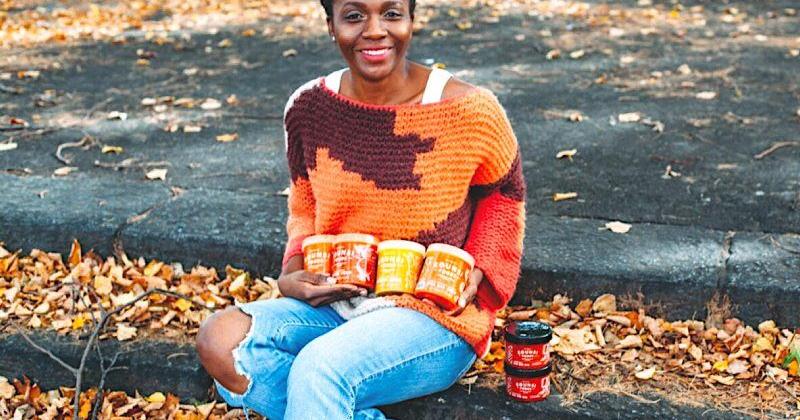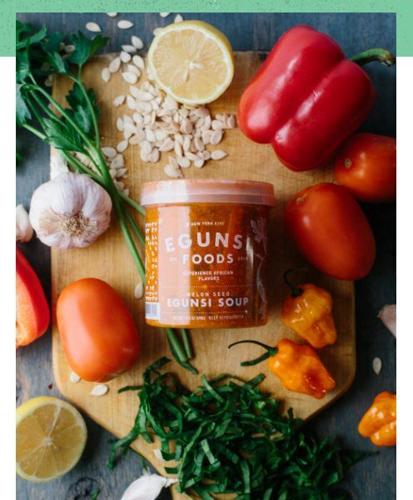Seeing a need and meeting it is often the means of building a profitable business. For Yemisi Awosan, founder of Harlem-based Egunsi (a-goo-see) Foods, cooking up favorite foods rooted in her Nigerian homeland has proved to be a recipe for success.
Awosan grew up in Nigeria and moved with her parents to Boston in 1994 for her father’s work as a professor at Northeastern University. While she had lived in the city in West Africa, she moved to an American suburb in 1998, where she learned gardening.
“We planted corn, rice, Nigerian sweet potatoes, yams, mango, guava, cashew fruit, and papaya,” Awosan said. “We had chickens and eggs. It was good to learn, even though I didn’t want to. It taught me the value of food and where it comes from.”
Her mother also expressed her hospitality through food, offering something to eat to anyone visiting. Those two influences would later influence Awosan.
At the University of Massachusetts in Amherst, Awosan studied apparel marketing. While there, Awosan’s new friends were curious about her life on another continent. One way to teach people about her culture was through the food of her childhood. Awosan asked her mother for recipes.
“She would walk me through it on the phone and I’d make it for friends,” Awosan said. “It allowed me to talk about my culture.”
From Hobby to Career
When she graduated from college, she continued having friends over for West African food. By 2005, she had moved to New York City to intern at Saks Fifth Avenue and afterwards worked for Brand Alliance and Macy’s as a buyer. But, the experience of cooking Nigerian dishes for her friends stuck with her. Now that she had learned the ropes of business, she knew she could share her love of West African foods with more people. She quit her job in 2015 to work on Egunsi Foods full-time.
She sources as many fresh ingredients as she can from New York, New Jersey and Massachusetts.
“I connect with farmers who are local,” Awosan said. “We buy our tomatoes at the height of the season, process and use throughout the year.”

Egunsi Foods makes four soups, plus a red pepper sauce.
Certain dried goods like brown peas — also called Nigerian honey peas — come from Nigeria or Ghana. These legumes are difficult to find in the U.S. and possess a unique flavor and texture.
Her soup varieties include Melon Seed, Tomato Obe Ata, Peanut Butter Groundnut and Brown-Eyed Pea Gbegiri. She also produces Ata Din Din, a red pepper sauce. All are vegan and free of soy, dairy, gluten and artificial ingredients.
The help of Bruno Xavier has been particularly important for the soups’ safety and authenticity. Xavier, the senior Extension associate and processing authority for Cornell’s Food Venture Center, helped her shift from cooking in small batches in a home kitchen for friends’ immediate consumption to larger batches for selling in jars for later consumption.
“I use lemon juice as an acidifier,” Awosan said. “You’d never find it in West African food but it prolongs the shelf life from five to 100 days.”
For two years, she tested the market through personal chef work and catering. Her first product became available in 2017.
‘Egunsi My Way’
Since starting her business, Awosan has processed more than 13,000 pounds of tomatoes and 8,000 pounds of brown-eyed peas. In addition to that authentic ingredient, she sticks with unrefined palm oil, despite some pushback.
“What is this soup without it?” she said. “I didn’t want to be (declined) by the Nigerian community. It’s the authentic flavor of what it should be. The product is not as spicy as some like it. One of the things I tell customers is they can add their own extra spices.”
She has also considered offering spicier soups while continuing to make her current line of “foundational” soups.
“We encourage our customers on our Instagram page to do whatever they want with the soup, #egunsimyway,” Awosan said. “We let customers know they can do whatever they want and if they tag us we can feature it on our Instagram.”
These and other marketing techniques have helped her sell 2,300 jars of soup per month. She began as strictly wholesale. When the pandemic began, she was already online with Fresh Direct and making soup for a private label.
“We were well-positioned for consumers to order from the website, she said. “In November, we built a direct-to-consumer part of the website.”
Although $80 for a four-pack of soup sounds like a lot, Awosan said that the expedited shipping and cold pack are what inflates the price. She wants to ship the perishable soup within a two-day window. She is working on including product fulfillment in Ohio and California to reduce costs. She also delivers within New York’s four boroughs for $39.99 for a four-pack.
Summer is not known as a robust soup selling season. Awosan has been promoting her soup as a simmering sauce and recipe starter, and as a marinade while grilling. The tomato variety may be eaten chilled.
She has been the only employee, but planned to bring three people onboard soon, working remotely. She works out of a local commercial kitchen for local delivery and uses a co-packer in Massachusetts and another in upstate New York.
“My dream is to figure out how to source more ingredients locally,” she said. “I want to work with local farmers.”
For more information, go to egunsifoods.com.












